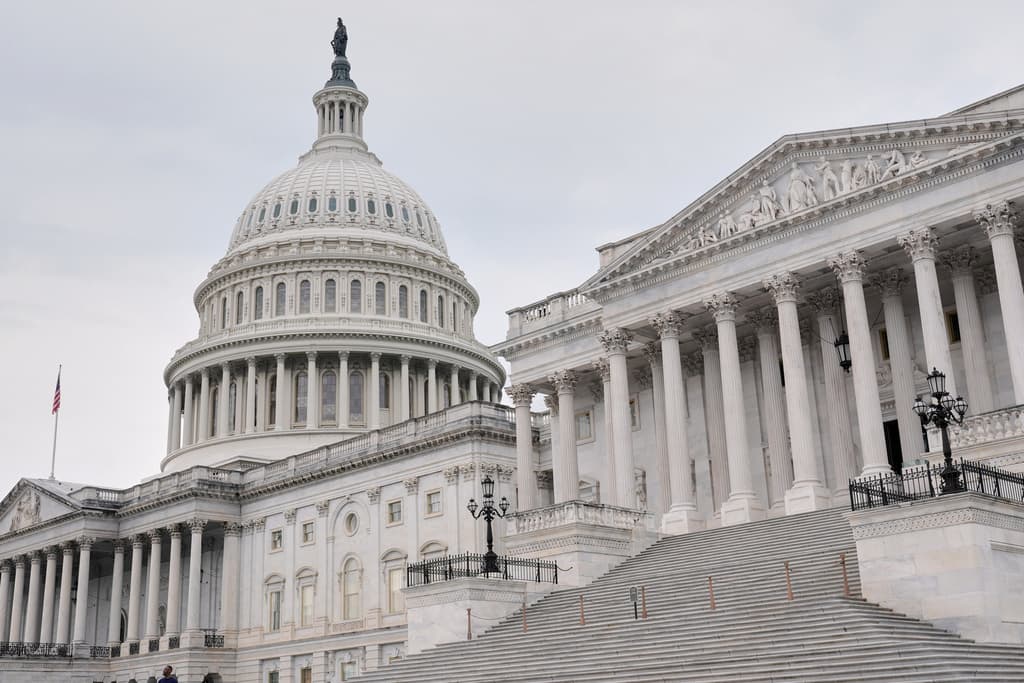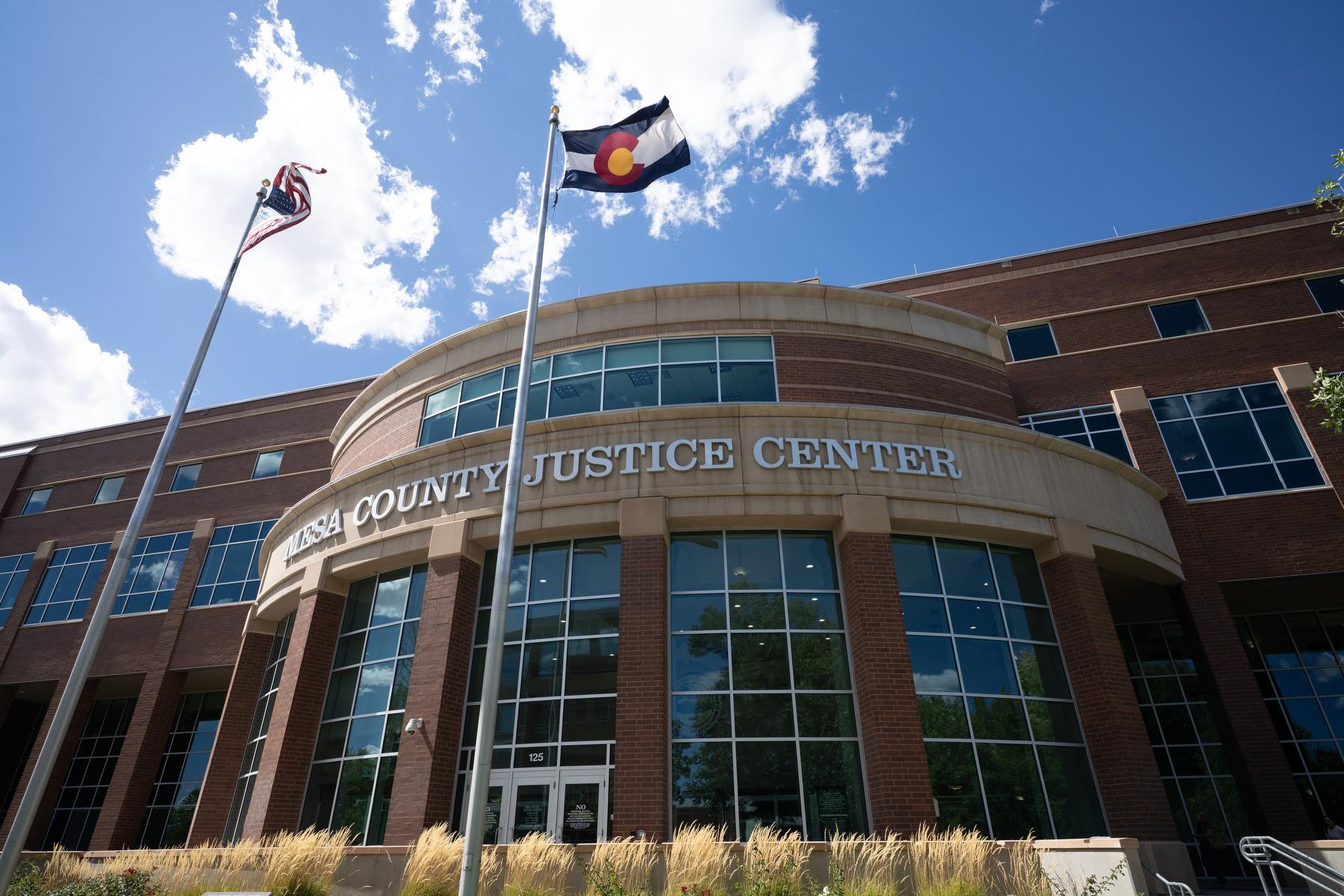
State legislators wrapped up their session late Tuesday with the usual flurry of last-minute lawmaking. Looking back over the past four months of work, here is a (decidedly not exhaustive) list of some of the most significant policies they advanced — and a few they didn’t:
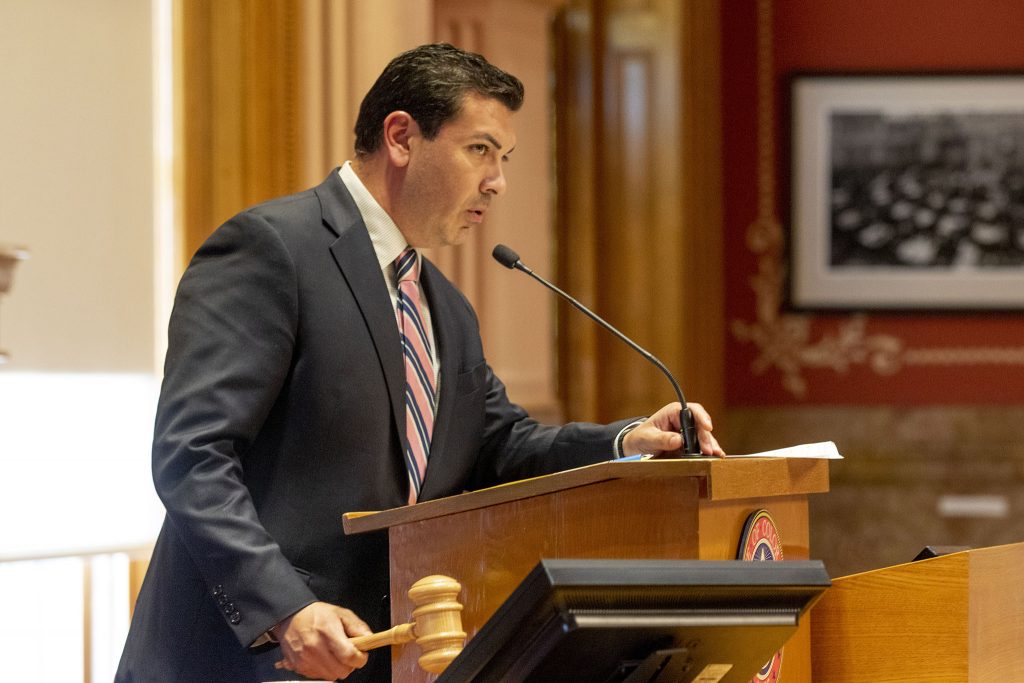
Democrats passed more new gun laws than ever in a single year
Democrats started the year with a relatively ambitious slate of new gun laws, steered in part by the leadership of Rep. Tom Sullivan, whose son’s murder in the Aurora theater shooting led him into politics. But the mass shooting at a King Soopers in Boulder pushed lawmakers even further than they’d originally intended to go. All told, the legislature passed a half dozen bills that tighten the rules on gun ownership. People will now be required to store firearms safely when not in use and report when they are lost and stolen.
A conviction for many violent misdemeanors will prevent someone from buying a gun for five years. Local governments will be able to pass stricter gun laws than the state. People in domestic violence cases are more likely to have to surrender any guns they own. And the state is setting up an Office of Gun Violence Prevention. However, not every policy that was discussed made it into bill form; Democrats chose not to introduce bills to require a three day waiting period for gun purchases or outlaw the sale of ‘assault-style’ weapons.

The state is getting a ‘Colorado Option,’ but it’s very different than what was originally envisioned
Lowering the cost of health insurance and health care has been a central goal for Gov. Jared Polis, and the pandemic didn’t change that. This year, lawmakers place new regulations on insurance companies and medical providers to achieve that goal. Private companies will be required to sell a “Colorado Option” insurance plan to individuals and small organizations.
The plan will come with benefits that are supposed to lower out-of-pocket costs. The law also says that insurance companies must find a way to make it cheaper, lowering costs 15% by 2025, compared to the average plan today. The bill also allows the state to regulate the prices that hospitals and doctors can charge under the plan. Only two other states and the federal government have embraced that power.
The Colorado Option went through a series of rewrites and compromises, with the negotiations disappearing from public view for weeks at a time. Ultimately, Democrats convinced groups representing hospitals and doctors to take a “neutral” position on the bill, while insurance companies and Republicans opposed it. A separate bill that Democrats also say will help with medical costs will create a new board that can control the prices of prescription drugs.
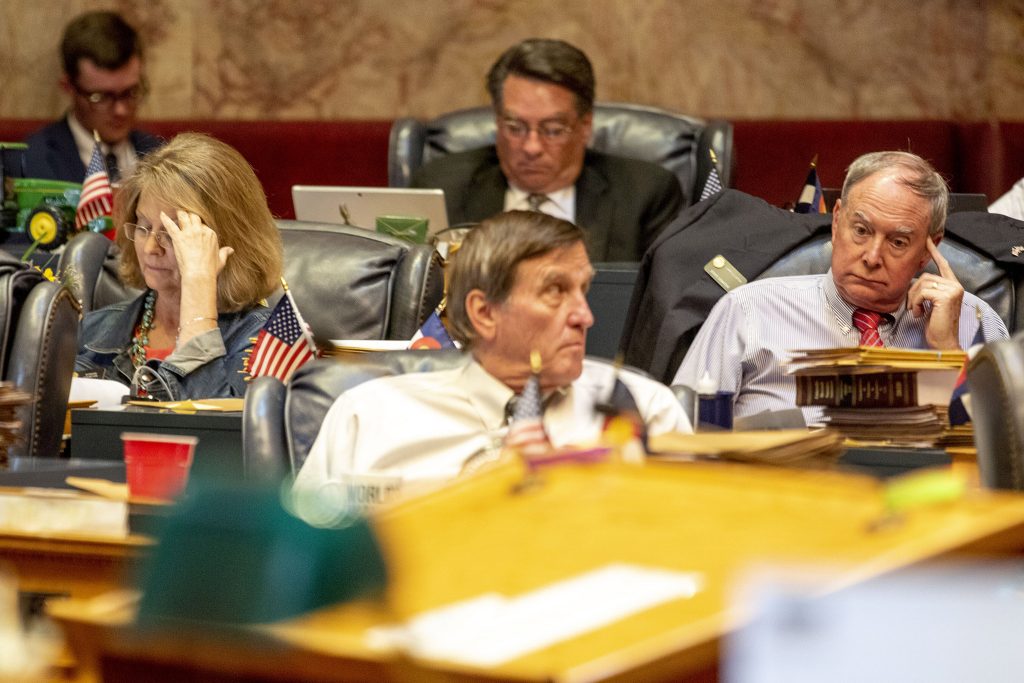
After a veto threat and a lot of off-screen negotiation, Democrats and the Governor got together on a climate bill
Some of this session’s biggest political drama came around a bill that would give air quality regulators more power to limit greenhouse gas emissions across the economy.
In the three years since Democrats won complete control of state government, lawmakers and environmental groups have grown frustrated with Gov. Polis’ focus on using incentives and voluntary agreements to meet Colorado’s greenhouse gas emission targets. His critics argue that isn’t enough unless the state also imposes regulations to hold businesses accountable.
The tensions boiled over when Polis threatened to veto SB21-200. In a rare show of public defiance, Democrats lawmakers continued to advance the bill through the process, while also negotiating furiously behind the scenes. The result was an 11th hour deal that saw elements of SB21-200 added to another climate-related bill, with the governor’s blessing. Under the compromise, the state will put new emissions restrictions on the industrial, electric, and oil and gas sectors, but not transportation and buildings, as the sponsors had originally hoped.

A year after George Floyd’s murder, criminal justice reformers pass ambitious agenda, but don’t get as far as they’d hoped
Justice reformers spent much of the session lobbying for policies meant to keep more people out of jail — the bill would have required police to write summons for many low level crimes, instead of making an arrest. And judges would have had to grant personal recognizance bonds, instead of setting cash bail, in many cases. Advocates argued the consequences of low-level arrests and jail time can be significant, and disproportionately impact people of color. But law enforcement and other opponents countered it would encourage lawbreaking and give people little reason not to blow off court dates. The bill failed in the House Finance Committee the evening before lawmakers adjourned.
However, several other significant measures did move forward. People who are arrested anywhere in the state will now be assured of seeing a judge within 48 hours, even on weekends, something advocates have tried to pass for several years now. Other bills passed include restrictions on when EMTs can administer ketamine to someone being arrested and revisions to last year’s broad police accountability bill. Most measures were backed only by Democrats, but one bipartisan effort did go through: a collaborative effort to overhaul the state’s complex list of misdemeanor crimes. A bill that ends the policy of suspending people’s driver’s licenses for unpaid court fees and judgments also garnered some Republican votes.

The future of transportation funding starts with a fee on your Grubhub tacos
A few pennies here, a quarter there — a raft of new fees lawmakers passed on everything from gasoline sales to your next takeout order will add up to billions of dollars in new revenue for the state’s transportation system. Most of the TABOR-evading new fees will kick in next year. But perhaps the biggest impact of Senate Bill 21-260 will take much longer to unfold: many of those new fees are set to rise automatically over time. That will help address an existing multi-billion dollar backlog in transportation projects left unfunded for years because, in part, the state’s gas tax isn’t indexed to inflation and has remained the same since 1991.
The bill effectively diversifies how transportation funding is raised and spent in the state, away from a model where fuel taxes pay for state and local road projects to one where fees support everything from road repair and expansion to electric vehicle adoption, environmental mitigation and more. Business and environmental interest groups both had their complaints about the bill, but the Democratic sponsors were able to hold together a fairly diverse coalition of support outside the Capitol — even if it ultimately passed with only one Republican vote.
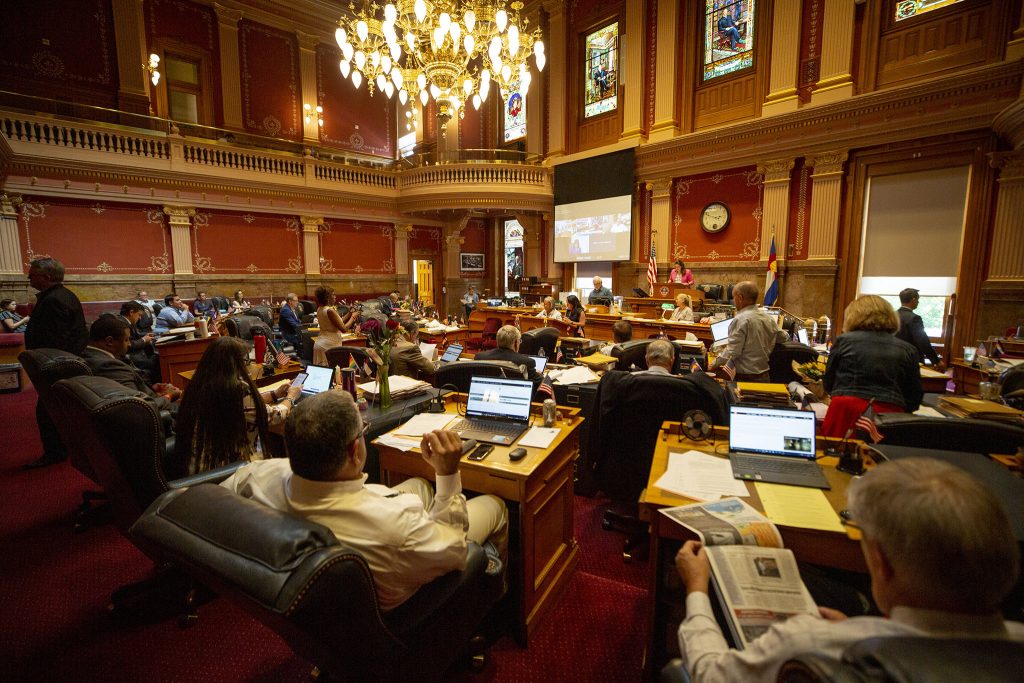
The rich and large companies are going to pay more taxes, while parents and low-wage workers enjoy more benefits
This was the session that Democrats showed they’ve cracked the code to raising new revenues, without asking voters for permission, as TABOR generally requires. Large companies and wealthy Coloradans will pay an estimated $400 million more a year in taxes, thanks to a bill that eliminates a host of credits and exemptions. Democratic lawmakers are directing more than half that money back to small businesses, families, and low income workers. They created a statewide Child Tax Credit and boosted the state’s Earned Income Tax Credit, as well as enacting tax changes to help smaller businesses.
At the last minute, lawmakers also stepped in to try to circumvent a statewide property tax cut that a conservative group is trying to put on the fall ballot. SB21-293 contains language that ensures that even if voters approve the 9-percent tax cut initiative, the initiative’s effects on tax collections will be significantly limited. At the same time, the Senate bill tries to offer a compromise: It would lower property tax rates for two years and allow people to delay payment on some property taxes. This is all happening as many homeowners face rising property taxes due to a hot real-estate market.
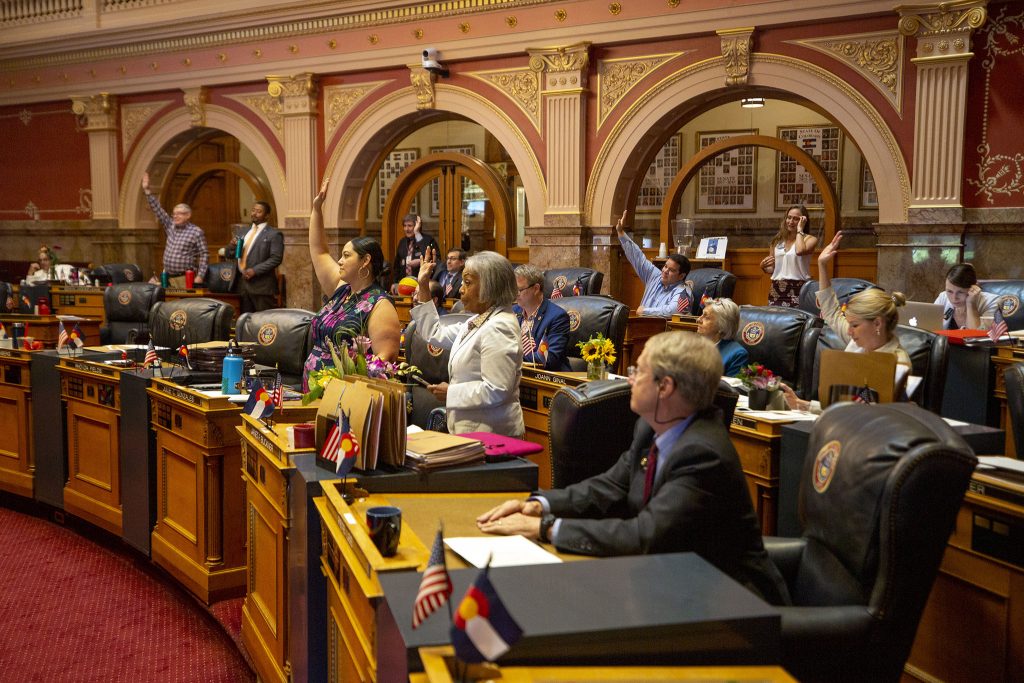
Undocumented immigrants can now get professional licenses and public benefits
Colorado Democrats started the session saying that one of their biggest goals was to address long-standing social and economic inequities laid bare by the pandemic. And for some, that meant specifically tackling some of the hurdles undocumented immigrants face as they try to build their lives in the state.
Perhaps the most significant bill removes the requirement for people to show legal status before they could get a professional license or certification. Colorado requires state licensing for everyone from accountants to massage therapists and veterinarians, so this change could open up significant new opportunities for undocumented residents. The same bill also makes it possible for people to apply for state and local benefits regardless of legal status. Lawmakers also passed a bill to prevent state agencies, in particular the DMV, from sharing residents’ information with federal immigration authorities.
Another bill which could have a direct impact for some undocumented workers in the state is the Agricultural Workers Bill of Rights. Senate bill 87 was strongly opposed by Republicans and some farmers and ranchers. It would allow farm workers to unionize, creates a weekly minimum wage and says workers must be eligible for overtime pay and work breaks. The measure sets up a rule making process to determine what constitutes a regular work week for the various sectors of the agriculture industry.
Colorado also expanded the jurisdiction of the office of the Child Protection Ombudsman, allowing it to initiate investigations on behalf of unaccompanied immigrant children.

Younger medical marijuana card holders will face new restrictions due to a law aimed at keeping products out of minors' hands
Concentrated marijuana products were a big topic of conversation at the legislature this year, with growing concern about the ease with which some underage users are getting their hands on them.
Talks about placing an overall cap on potency never got off the ground, with lawmakers instead introducing House Bill 1317, which limits how much concentrate medical marijuana cardholders are able to purchase each day and institutes a purchase tracking system, to prevent people from going to different stores to buy more than allowed. It also makes it tougher for 18-to-20 year olds to qualify for a medical marijuana card, by requiring them to visit a physician in person and get written consent from two doctors from two different practices.
The bipartisan bill passed with broad support, with only eight lawmakers voting against it. It also directs the Colorado School of Public Health to report back to the legislature on research gaps on the health impacts of highly potent marijuana by next summer.

Renters gain new rights in eviction proceedings, but the moratorium is still going away
There was one notable item missing from Democrats’ housing agenda this year: reinstating a moratorium on evictions. Advocates had hoped that state lawmakers would create a temporary state-level ban on residential evictions, since the federal moratorium may end this month — but it never materialized.
Instead, Democrats passed a series of permanent changes that will give renters more rights and protections. One bill, SB 173, gives renters a longer chance to avoid eviction by allowing them to stop eviction proceedings by simply repaying their overdue rent — at any point until a judge orders them to leave. The bill also caps late fees for renters at $50 or 5 percent of the amount owed, and it makes it financially easier for renters to argue in court that they shouldn’t owe rent because their property is uninhabitable.
Another bill, HB 1121, would require landlords to give a two-month notice before raising the rent — including for tenants who are on a month-to-month lease. It also says that, even after a judge orders an eviction, sheriff’s deputies must wait 10 days to remove the person.
Separately, Democrats gave cities the power to require affordable housing in new development. Under a new law, they can say that new construction must include a certain number of units at a reduced cost, although they also must provide other options, like paying fees. That law and others also encourage cities to embrace pro-density policies that could encourage more housing construction overall.
- Workplace Harassment Bill Fails in House Committee
- Colorado Will Ban Plastic Bags And Plastic Foam Containers. There Are Several Exceptions, However.
- After Months Of Debate, Agriculture Workers Are Set To Gain New Rights In Colorado
- Your Money Is Good Here: Colorado Retailers Must Soon Accept Your Cash As Payment, Or Face A Penalty

